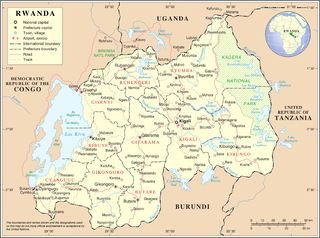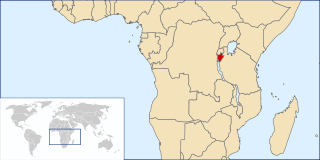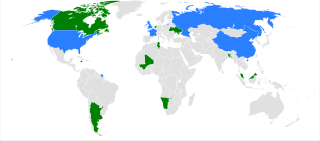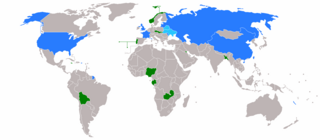
The United Nations General Assembly, UNGA; French: Assemblée générale des Nations unies, AGDNU is one of the six principal organs of the United Nations (UN), serving as its main deliberative, policymaking, and representative organ. Currently in its 79th session, its powers, composition, functions, and procedures are set out in Chapter IV of the United Nations Charter.

A United Nations Security Council resolution (UNSCR) is a United Nations resolution adopted by the Security Council (UNSC), the United Nations (UN) 15-member body charged with "primary responsibility for the maintenance of international peace and security".

United Nations Security Council resolution 986, adopted unanimously on 14 April 1995, after reaffirming all resolutions on Iraq and noting the serious humanitarian situation with the Iraqi civilian population, the council, acting under Chapter VII of the United Nations Charter, established a mechanism whereby Iraqi oil exports would finance humanitarian aid to the country, which later became known as the Oil-for-Food Programme.

United Nations Security Council resolution 1591, adopted on 29 March 2005, after recalling resolutions 1547 (2004), 1556 (2004), 1564 (2004), 1574 (2004), 1585 (2005), 1588 (2005) and 1590 (2005) on the situation in Sudan, the council placed a travel ban and asset freeze on those "impeding the peace process" in Darfur.

United Nations Security Council resolution 948, adopted on 15 October 1994, after recalling resolutions 841 (1993), 861 (1993), 862 (1993), 867 (1993), 873 (1993), 875 (1993), 905 (1994), 917 (1994), 933 (1994), 940 (1994) and 944 (1994), the Council welcomed the return of the legitimate President of Haiti Jean-Bertrand Aristide and lifted sanctions imposed on the country.

United Nations Security Council resolution 968, adopted unanimously on 16 December 1994, after noting statements by the president of the security council and reports by the Secretary-General Boutros Boutros-Ghali on the situation in Tajikistan, the council established the United Nations Mission of Observers in Tajikistan (UNMOT) and addressed the process of national reconciliation in the country.

United Nations Security Council Resolution 989, adopted unanimously on 24 April 1995, after recalling Resolution 955 (1994), the council listed the nominations for judges at the International Criminal Tribunal for Rwanda.

United Nations Security Council resolution 1191 was adopted unanimously on 27 August 1998. In it, after recalling resolutions 808 (1993), 827 (1993) and 1166 (1998), the Council forwarded a list of nine nominations for judges at the International Criminal Tribunal for the former Yugoslavia (ICTY) to the General Assembly for consideration.

United Nations Security Council resolution 1200, adopted unanimously on 30 September 1998, after recalling resolutions 955 (1994), 989 (1995) and 1165 (1998), the Council forwarded 18 nominations for judges at the International Criminal Tribunal for Rwanda (ICTR) to the General Assembly for consideration.

United Nations Security Council resolution 1301, adopted on 31 May 2000, after recalling all previous resolutions on the question of the Western Sahara, in particular resolutions 1108 (1997) and 1292 (2000), the Council extended the mandate of the United Nations Mission for the Referendum in Western Sahara (MINURSO) until 31 July 2000.

United Nations Security Council resolution 1340, adopted unanimously on 8 February 2001, after recalling resolutions 808 (1993), 827 (1993), 1166 (1998) and 1329 (2000), the Council forwarded a list of nominees for permanent judges at the International Criminal Tribunal for the former Yugoslavia (ICTY) to the General Assembly for consideration.

United Nations Security Council resolution 1375, adopted unanimously on 29 October 2001, after reaffirming all resolutions and statements by the President of the Security Council on the civil war in Burundi, endorsed efforts by South Africa and other states to implement the Arusha Accords and supported the establishment of an interim multinational security presence in Burundi.

United Nations Security Council Resolution 1931, adopted unanimously on June 29, 2010, after recalling resolutions 827 (1993), 1581 (2005), 1597 (2005), 1613 (2005), 1629 (2005), 1660 (2006), 1668 (2006), 1800 (2008), 1837 (2008), 1849 (2008), 1877 (2009), 1900 (2009) and 1915 (2010), the Council noted that the 2010 target for the completion of trials at the International Criminal Tribunal for the former Yugoslavia (ICTY) could not be met, and therefore extended the terms of 23 judges at the ICTY.

United Nations Security Council resolution 1502, adopted unanimously on 26 August 2003, after recalling resolutions 1265 (1999), 1296 (2000) and 1460 (2003), the council condemned violence against humanitarian workers and called upon all states to ensure that such incidents did not remain unpunished.

United Nations Security Council resolution 1567, adopted unanimously on 14 October 2004, after recalling resolutions 827 (1993), 1166 (1998), 1329 (2000), 1411 (2002), 1481 (2003), 1503 (2003) and 1534 (2004), the Council forwarded a list of nominees for permanent judges at the International Criminal Tribunal for the former Yugoslavia (ICTY) to the General Assembly for consideration.

United Nations Security Council Resolution 1590, adopted unanimously on 24 March 2005, after recalling resolutions 1547 (2004), 1556 (2004), 1564 (2004), 1574 (2004), 1585 (2005) and 1588 (2005) on the situation in Sudan, the Council established the United Nations Mission in Sudan (UNMIS) for an initial period of six months.

United Nations Security Council Resolution 1613, adopted unanimously on 26 July 2005, after recalling resolutions 827 (1993), 1166 (1998), 1329 (2000), 1411 (2002), 1431 (2002), 1481 (2003), 1503 (2003), 1534 (2004) and 1597 (2005), the Council forwarded a list of nominees for temporary judges at the International Criminal Tribunal for the former Yugoslavia (ICTY) to the General Assembly for consideration.

United Nations Security Council Resolution 1643, adopted unanimously on 15 December 2005, after recalling previous resolutions on the situation in Côte d'Ivoire, the Council extended an arms embargo and travel and financial restrictions against the country until 15 December 2006, and included a ban on the trade of diamonds.

The 1999 United Nations Security Council election was held on 14 October 1999 during the Fifty-fourth session of the United Nations General Assembly, held at United Nations Headquarters in New York City. The General Assembly elected Bangladesh, Jamaica, Mali, Tunisia, and Ukraine, as the five new non-permanent members of the UN Security Council for two-year mandates commencing on 1 January 2000. Notably, Ukraine was elected to the Council for the first time as an independent nation.

The 1978 United Nations Security Council election was held on 10 November 1978 during the Thirty-third session of the United Nations General Assembly, held at United Nations Headquarters in New York City. The General Assembly elected Bangladesh, Jamaica, Norway, Portugal, and Zambia, as the five new non-permanent members of the UN Security Council for two-year mandates commencing on 1 January 1979. Notably, Bangladesh, Jamaica and Portugal were elected members of the council for the first time.



















